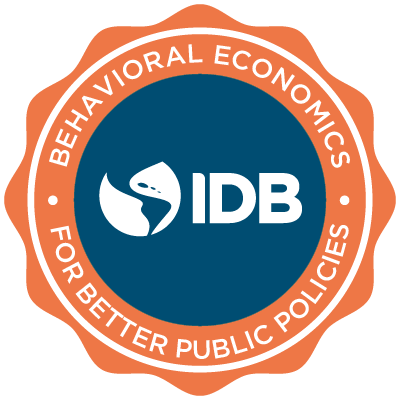Behavioral Economics for Better Public Policies Edition 12
You can earn this badge if you successfully complete the course.
ABOUT THIS COURSE
In recent years, an increasing number of governments and policymakers have come to realize that, in order for public policies to be truly successful, they must consider how individuals behave and make decisions. Based on this idea, this course aims to teach you key concepts of behavioral economics and how they differ from the notions of the standard economic model. The course also introduces tools that can help promote a better decision making and reviews cases from real interventions in which these nudges were used to improve public policies in Latin American countries, and other parts of the world. This course was developed by the IDB’s Research Department and the Knowledge, Innovation and Communications Sector, under the guidance of the IDB’s Behavioral Economics Group.
AUDIENCE OF THE COURSE
COST & REIMBURSEMENTS
COURSE STRUCTURE
• The behavioral economics field.
• Deviations from the standard economic model: beliefs, preferences and information processing.
• Behavioral economics and public policy.
• The Behavioral Economics Toolkit.
• Examples of interventions that have used the toolkit in diverse contexts.
• A deeper look at the use of behavioral economics tools in two public policy topics: tax compliance and health.
• An interactive example of how to improve the results of a particular public policy by using lessons from behavioral economics.
